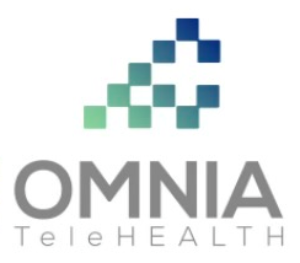The skin is our body’s largest organ and serves as the first line of defense against environmental factors. However, just like any other part of our body, the skin requires adequate rest to function at its best. During sleep, our body goes through a series of restorative processes, including the production of collagen and the repair of damaged skin cells.
When we experience poor sleep or inconsistent patterns, these crucial repair processes are interrupted. Over time, this can lead to a range of skin issues, such as premature aging, dullness, and a compromised skin barrier. Telehealth providers, such as OMNIA TeleHEALTH, offer a unique opportunity for patients to discuss skin health concerns that might be related to sleep patterns without needing to visit a physical office.
The Impact of Sleep Deprivation on Skin
Sleep deprivation, whether occasional or chronic, can have a noticeable impact on your skin. Here are several ways poor sleep can affect skin health:
- Accelerated Aging: A lack of sleep increases cortisol levels in the body, a stress hormone that breaks down collagen—the protein responsible for keeping skin firm and smooth. Increased cortisol can also exacerbate fine lines, wrinkles, and skin sagging.
- Inflammation: Poor sleep promotes inflammation throughout the body, including the skin. This inflammation can lead to conditions like acne, eczema, and psoriasis, making them harder to manage without proper rest.
- Reduced Skin Hydration: While we sleep, our skin’s hydration levels naturally balance, thanks to improved circulation. When sleep is disrupted, this balance falters, resulting in dryness, puffiness, and dark under-eye circles.
- Weakened Skin Barrier: The skin barrier is critical in protecting against external aggressors like pollution and UV rays. Inadequate sleep impairs this barrier, making the skin more susceptible to damage, irritation, and infections.
The Role of the Sleep-Wake Cycle in Skin Health
One of the most critical elements of skin health is the sleep-wake cycle, or circadian rhythm, which regulates many bodily functions. This internal clock controls when your skin cells produce vital proteins and when repair mechanisms kick in. A stable circadian rhythm ensures that the skin can repair itself efficiently at night.
Disrupting this rhythm, whether due to shift work, insomnia, or inconsistent sleep schedules, can throw the body’s natural processes out of sync. For instance, melatonin, a hormone responsible for inducing sleep, also acts as an antioxidant for the skin, helping to prevent oxidative damage from daily environmental stressors. A lack of sleep results in lower melatonin levels, leaving the skin vulnerable to external damage.
OMNIA TeleHEALTH’s telehealth services make it easy for patients to consult with specialists about managing sleep-related skin conditions. By assessing an individual’s sleep patterns and overall lifestyle, telehealth providers can create a personalized care plan designed to optimize skin health.
Telehealth and Personalized Care for Skin Health
OMNIA TeleHEALTH focuses on delivering personalized healthcare solutions via telemedicine. Through virtual consultations, patients can discuss skin issues related to their sleep patterns without leaving the comfort of their homes. This is especially beneficial for those who have tight schedules or live in remote areas, allowing for comprehensive skin care guidance tailored to their needs.
Telehealth consultations offer several advantages:
- Convenience: No need for in-person visits; patients can discuss skin health concerns, sleep habits, and receive treatment plans from the comfort of their home.
- Personalized Treatment Plans: Providers can review patients’ sleep diaries or use tracking apps to assess their sleep quality, tailoring skincare routines and treatment suggestions based on individual habits.
- Comprehensive Support: OMNIA TeleHEALTH’s team of providers can guide patients on optimizing their sleep environment, recommending the best nighttime skincare products, and offering tips to enhance sleep hygiene.
Through telehealth, providers can also address additional concerns such as underlying conditions that may be disrupting sleep, like anxiety, insomnia, or hormonal imbalances, and how those factors may be influencing skin health.
Practical Steps to Improve Skin Through Better Sleep
Improving skin health often starts with improving sleep quality. Here are some practical tips OMNIA TeleHEALTH providers might suggest during a virtual consultation:
- Establish a Consistent Sleep Schedule: Going to bed and waking up at the same time every day helps to regulate your circadian rhythm, promoting better skin health.
- Optimize Your Sleep Environment: Make your bedroom conducive to sleep by keeping it dark, quiet, and cool. Consider using a humidifier to maintain skin hydration overnight.
- Practice Good Sleep Hygiene: Limit screen time before bed, avoid caffeine in the afternoon, and engage in relaxing activities like reading or meditation to prepare your body for rest.
- Use Overnight Skincare Products: Nighttime is when your skin is most receptive to healing. Consider products with ingredients like hyaluronic acid for hydration, retinol for collagen production, and peptides for skin repair.
By focusing on both internal and external care, individuals can significantly enhance their skin’s appearance and overall health. A telehealth consultation with OMNIA TeleHEALTH allows patients to receive expert advice on implementing these practices into their routines effectively.
Telehealth: A New Frontier for Skin Care Solutions
With the growing trend towards digital healthcare, telehealth services like OMNIA TeleHEALTH provide innovative solutions for those looking to improve their skin through better sleep. Telemedicine offers a flexible, convenient way to address skin concerns, and it ensures patients have access to expert advice on both sleep and skincare.
By harnessing the power of technology, OMNIA TeleHEALTH helps patients build routines that support both rest and rejuvenation, ensuring their skin remains healthy and resilient.
Sleep-Driven Skin: The Path Forward
As awareness grows regarding the importance of sleep on overall health, more people are recognizing its critical role in skin vitality. Sleep is not just about rest—it’s about giving your body, and particularly your skin, the time it needs to repair and regenerate. Addressing skin concerns through OMNIA TeleHEALTH’s virtual consultations offers a unique opportunity to tackle sleep-related skin issues without the hassle of in-person appointments. Whether you’re battling fine lines, acne, or dullness, improving your sleep patterns can be the first step toward healthier, glowing skin.
Sources:
- Han, C., et al. (2017). Sleep Deprivation Disrupts Skin Barrier Function. Journal of Dermatological Science.
- Patel, S., & McNamara, J. (2018). The Role of Sleep in Skin Rejuvenation. Sleep Medicine Reviews.
- McAlpine, C. S., & Campbell, M. (2019). Circadian Rhythms and Their Impact on Skin Health. Chronobiology International.


